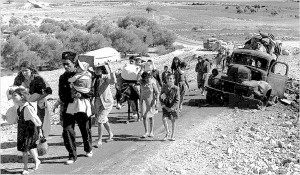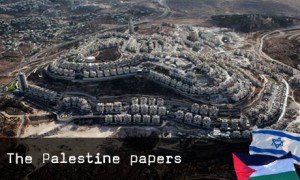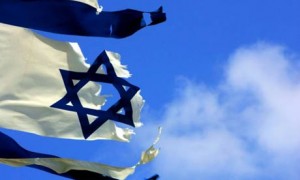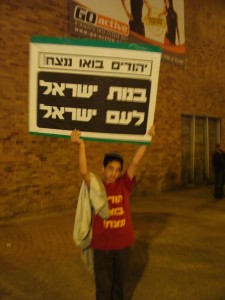Al Jazeera English, January 29, 2011
Not long after religious nationalists held a rally in Bat Yam under the banner of “Jewish girls for the Jewish people,” a group of rabbis’ wives published a letter urging Jewish women not to date Arab men.
Jewish-Palestinian couples remain uncommon here in Israel. But both the rally and letter point towards the difficulties faced by such couples, even those from liberal backgrounds.
Rona, a young professional Jewish woman in her early thirties who asked to be identified by a pseudonym, has kept her relationship with a Palestinian man a secret from most of her relatives for almost four years.
While her parents know and have met Rona’s boyfriend, Rona says that it’s at point that she’s “actively lying” to the rest of her family.
“I don’t know how to articulate how they’d react,” Rona says. “I think that my aunt and uncle know that there is someone… and they definitely know that he’s Arab. But it’s more about my grandmother and her sisters and the older generation. It’s like if [I] were to bring home a mass murderer.”
She laughs nervously and continues.
“It just doesn’t happen. It’s like: ‘Bring home somebody who is a total loser, but don’t bring home an Arab.’”
Rona describes her parents’ political views as “moving more left but kind of traditional,” adding, “My mom always says that she thinks that the occupation of Gaza and the West Bank in 1967 was a mistake and that [Israel] should have returned the territories.”
Still, Rona didn’t tell her parents about her relationship right away.
“There was a period of time I was hiding it for convenience’s sake. I just wanted to enjoy my life and not be harassed.”
When she did talk to her parents about her boyfriend, who is a non-practicing Muslim, they sidestepped the issue of his race, focusing, instead, on “cultural differences.”
“I was like, ‘What are you saying? That he’s going to come home one day and want me to put on a hijab? Do you know what the cultural differences are?’” Rona recalls. “So I took immediate offense to this concept. I thought it was racist from the get go.”
Her parents also objected to the relationship because “it would be so difficult for us to live here together,” Rona says, due to the widespread discrimination they would face.
Rona describes the first time her parents met her boyfriend as “awkward.”
“I think it was actually their first personal interaction with an Arab, other than [those working in] stores and restaurants,” Rona says. “I think it was a very emotional encounter for them. They liked him and my mom said he seemed like an amazing guy.”
Still, Rona’s mother insisted that she not put herself “in that kind of a situation.”
Rona says that she has not felt any racism coming from her boyfriend’s family. But, because of the political situation, there are moments when she feels a divide between them.
Rona was living with her boyfriend when Operation Cast Lead began in December of 2008. Her boyfriend’s mother, whose sister lives in the Gaza Strip, happened to be visiting when the war began.
“We were watching the news and they were showing the first strikes, the air attack,” Rona recalls. “His mom was screaming and crying and cursing the army and the Israelis and the Jews and everyone and I was standing there like ‘I don’t know what to do.’ On the one hand, I wanted to show her that I care. On the other, does she now want an Israeli Jew to put her arm around her? But I did.”
***
Although Israel’s religious nationalists have only recently spoken against such relationships, they are far from new. Jews and Arabs have been falling in love in Palestine as long as both have been here.
Dr. Iris Agmon, a professor in Ben Gurion University’s Department of Middle East Studies, comments, “In the Ottoman sharia court records one can find women whose nicknames hint to the fact that they are converted Muslims.” And some of these women were probably Jewish.
After Ottoman rule ended, the British Mandate saw such couples. Dr. Deborah Bernstein, a professor in the University of Haifa’s department of sociology and anthropology comments that although there is no “systematic documentation or even discussion of the subject… it is clear that such a phenomena did exist.” She found family stories of these couples while researching her Hebrew-language book about women in Mandatory Tel Aviv.
Bernstein also discovered “archival welfare documents,” pointing to such relationships. “For example, [one referred to] a [Jewish] woman leaving her husband and children and going to live with an Arab man.”
In most cases, Bernstein says, Jewish women converted to Islam before marrying their Arab partner. She believes that a majority of these couples left Israel when it was established in 1948.
Bernstein did not come across any examples of Jewish men marrying Christian Arab or Muslim Arab women.
Bernstein adds that the Jewish community was “very strongly opposed” to “mixed marriages.”
“This was the case in [Jewish immigrants’] countries of origin,” Bernstein says, explaining that the opposition to mixed marriages took on an “additional national element” here.
But, sometimes, protests against such relationships ran the other way—leaving a lasting impact on generations to come.
The Palestinian grandson of such a marriage lives in a neighboring Arab country. According to Jewish religious law, he is not Jewish. While, technically, many of his cousins are Jewish, they don’t know it—their grandmother’s conversion is a strictly-guarded secret, shared with only a few members of the family.
***
Because it remains an extremely sensitive issue for both communities, a number of Jewish-Palestinian couples declined Al Jazeera’s requests for interviews. Several were so concerned about their family reactions, they have not told their parents about their Jewish or Arab partner—one such couple has been together for over a year.
But Alex and Salma are lucky. Alex is the son of Jewish Israeli leftists. Salma is a young Palestinian woman whose Communist parents raised her and her four sisters with only a nod to their Christian roots. Because their families are so progressive, Alex says, their relationship is “relatively simple.”
“The first song I learned to sing was shir l’shalom [song for peace]. We’ve gone to demonstrations since I was a toddler. So I was always on the left,” he explains, “but I never knew any Palestinians.”
Alex’s comment points to the deep divisions in Israeli society that make Jewish-Palestinian relationships so unlikely.
“[Society] is built in a way that doesn’t help relationships,” Salma says. “Everything is segregated. The educational systems are separated… People don’t meet. And if they do meet, they meet under unusual circumstances, like at a demonstration.”
Even though both Alex and Salma grew up in liberal homes, the two were no exception—it was activism that brought them together.
And it helps keep them together. Most of their friends hold similar political views, providing a buffer from the rest of Israeli society.
“You know, we sort of chose our lives,” Salma says. “I can’t be friends with racist people so it’s easy to avoid. But I think if we would have gone out to more parties we would have faced more problems.”
Still, things are only “relatively simple.”
Alex recalls running into a friend from high school who made a racist and obscene remark about his relationship with Salma. And one of Salma’s closest childhood friends ended stopped speaking to Salma when she joined a Jewish-Arab group that advocates for a bi-national solution to the conflict.
“I think it comes out more than that,” Alex adds.
Salma nods and explains begins to explain, “I have one sister who got married last summer. She knows Alex and his family very well, so she wanted to invite [them]…”
Salma pauses and, a bit like an old married couple, Alex picks up the thread and continues, “And the oldest sister says, ‘What are you going to invite all of your Zionist friends?’”
There’s a flicker of hurt on Alex’s face as he remembers. “Now, this comes out of nowhere. I refused [mandatory military service],” Alex says. “I’m definitely not a Zionist. I refused and my parents aren’t Zionists.”
Alex emphasizes that he maintains a warm relationship with Salma’s oldest sister and that her remark came during an emotional argument. But, Alex says, the incident pointed to something that “can’t be completely erased… that the relationship can’t be normalized. It always has to be politically justified.”
What do such tensions say about Israeli society?
“Nothing good,” Alex answers.
The couple is also concerned about the recent outbreak of open racism in Israel.
“I think the hatred is becoming more and more explicit,” Salma says, pointing to the rally in Bat Yam and the rabbis’ wives’ letter as two examples. “It’s ‘don’t take our girls’…”
*Palestinian refugees in 1948. Could one of the women in this photo been a Jewish convert to Islam?
 Al Jazeera English, January 31, 2011
Al Jazeera English, January 31, 2011


